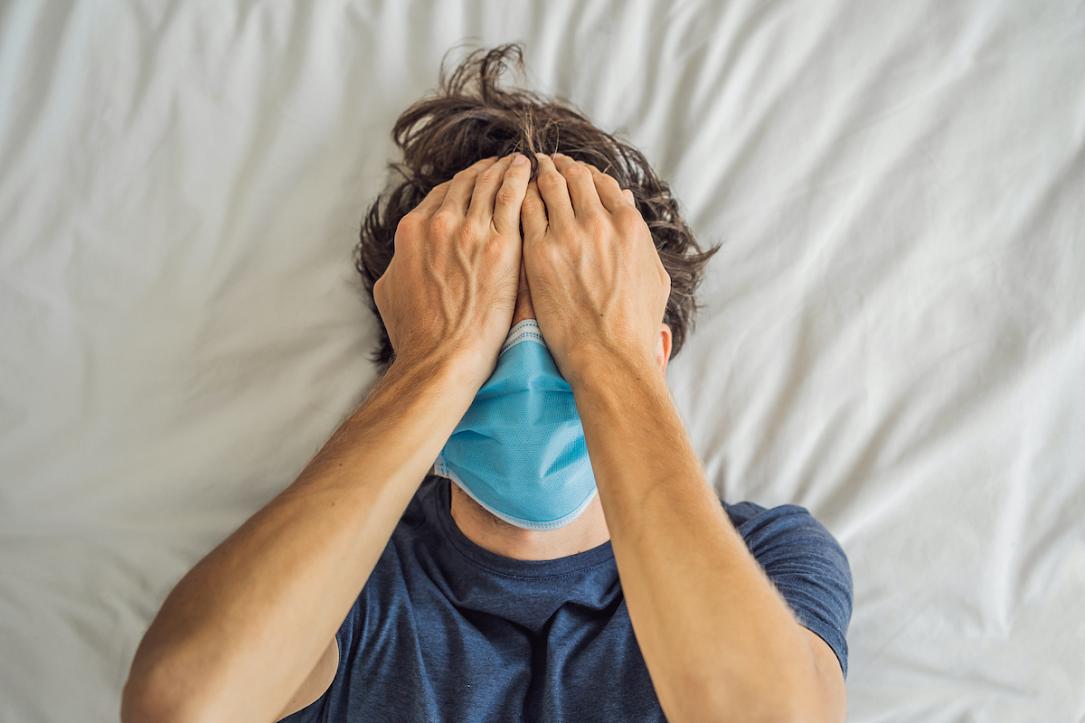The emotional impact of COVID-19: Romanians are sadder and angrier, study shows

The COVID-19 pandemic has had a strong impact on people’s physical and mental health. And a recent study revealed that Romanians are sadder, angrier, much more anxious, and have an increased sense of loneliness. Specifically, 42% of respondents reported a worsening of stress, and about a third of respondents reported a deterioration of nervousness.
The preliminary study was conducted with approximately 2,000 people aged between 28 and 50 years old. The data was analyzed and interpreted by specialists at a consortium formed by the “Socola” Psychiatry Institue, the “Grigore T. Popa” University of Medicine and Pharmacy, the Romanian Psychiatry and Psychotherapy Association, and Transilvania University.
“The study shows that the coronavirus pandemic can be extremely stressful for certain people. Fear and anxiety can be overwhelming both for adults as well as children. Preliminary data shows that certain pre-existing medical conditions intensified for many patients, while others began expressing states of anxiety, depression, and helplessness when faced with these new challenges. The undertaken research is part of the international COH-FIT (Collaborative Outcomes study on Health and Functioning during Infectious Times) program,” reads the press release.
Almost 70% of interviewees estimated an increase in the time they spent following mass-media as a way to cope with and manage the situation. Other methods to reduce stress and pass the time included physical exercise, open-air walks, discovering new hobbies, spending time with pets, and sexual activities.
42% of respondents reported an increase in their stress levels, a symptom which was experienced to a greater level by women (46%) and young adults (47%). Approximately a third of surveyed people reported greater nervousness, while over a quarter (28%) expressed an increased sense of loneliness.
“An early diagnosis of psycho-emotional disturbances is an important step in the establishment of an adequate treatment should the need arise; subsequently, family doctors have and should have a very significant role in this step. Any of us can unexpectedly progress from short moments of sadness or apathy to depression,” said Dr. Ovidiu Alexinschi, medical director at the “Socola” Psychiatry Institute and coordinator for the COH- FIT study in Romania.
“In these times, remaining calm as well as thinking rationally before undertaking any action is highly recommended. After all, we must accept that we are going through a situation that we cannot control, and we must establish a daily routine. If we stay at home, for example, we should gather our news only from safe and reputable sources and must set aside some daily time to relax or meditate (long baths, music, sports, yoga). More importantly, however, should the above activities not yield any positive results, we should consult our family doctor to seek specialized help,” he added.
Throughout the pandemic, the risk of suffering from depression or other mental and emotional disturbances was exacerbated by factors such as poverty, the loss of a job or workplace, upsetting life events, such as the loss of a close person or the end of a relationship, physical diseases or even other problems associated with the consumption of alcohol or drugs.
irina.marica@romania-insider.com
(Photo source: Elizaveta Galitskaya/Dreamstime.com)
















